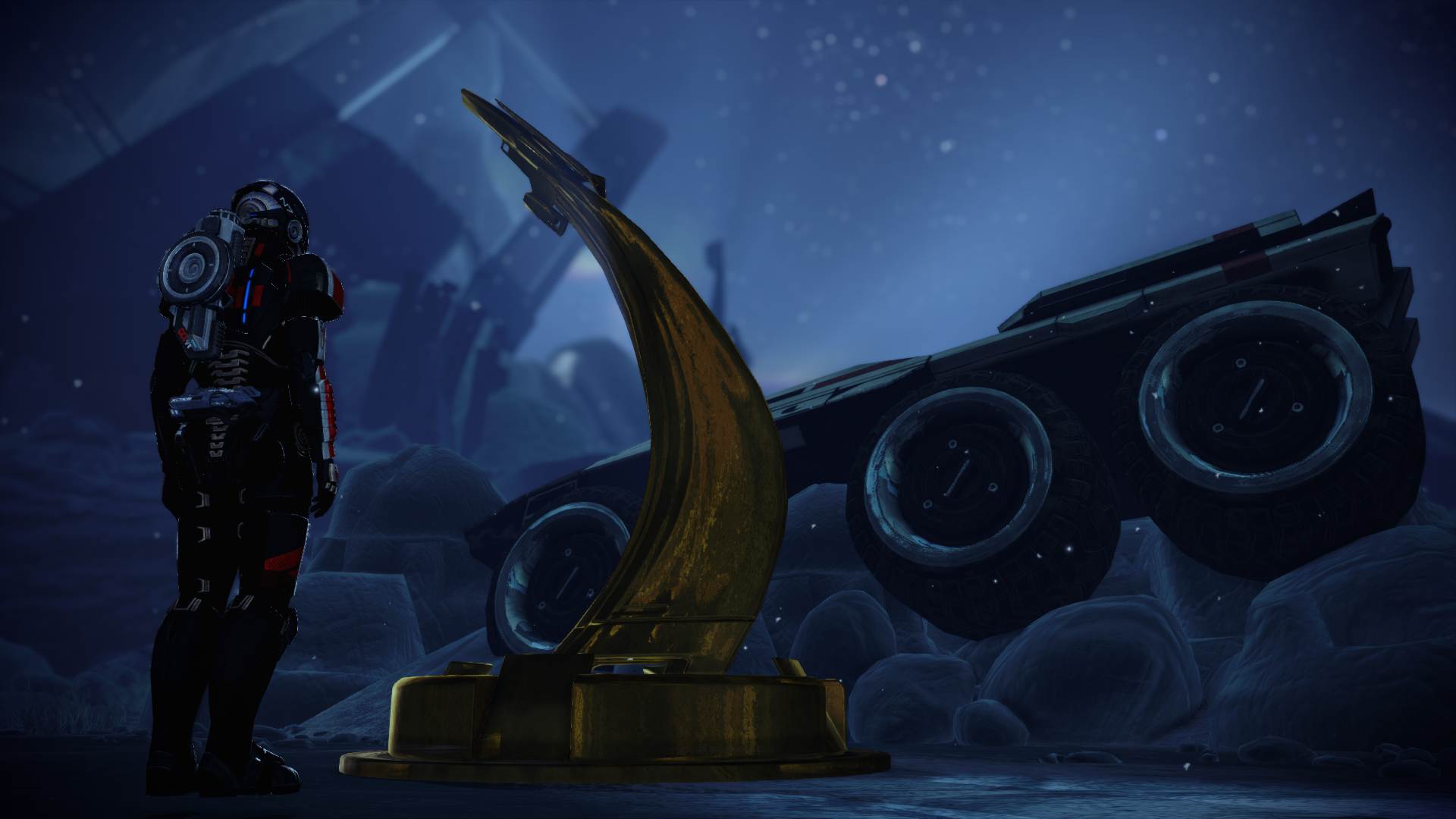A defining trilogy, finally in one launcher
There haven’t really been many series that try to do what Mass Effect does. Other games have certainly carried choices across individual entries or even multiple games, but Mass Effect threads the various decisions your Commander makes throughout three full games and their myriad DLC.
It stands out as a major piece of what the PS3-360 generation was, and what hasn’t been attempted since, except by other BioWare games like the Dragon Age series—and even then, those games swap their protagonists, rather than carry a single one through. It isn’t just a hero, but a Commander Shepard, your Commander Shepard.
The result is a series with divisive takes and differing preferences, ranging from which romance and squadmate is the ultimate best to which choices are the right ones to make. I’m still taken aback when people say they killed Wrex on Virmire, or Mordin on Tuchanka, or escaped the Collector’s Base without a perfect run. For some folks, these are their canon playthroughs, preserved in amber as the way they experienced this trilogy for the first time.
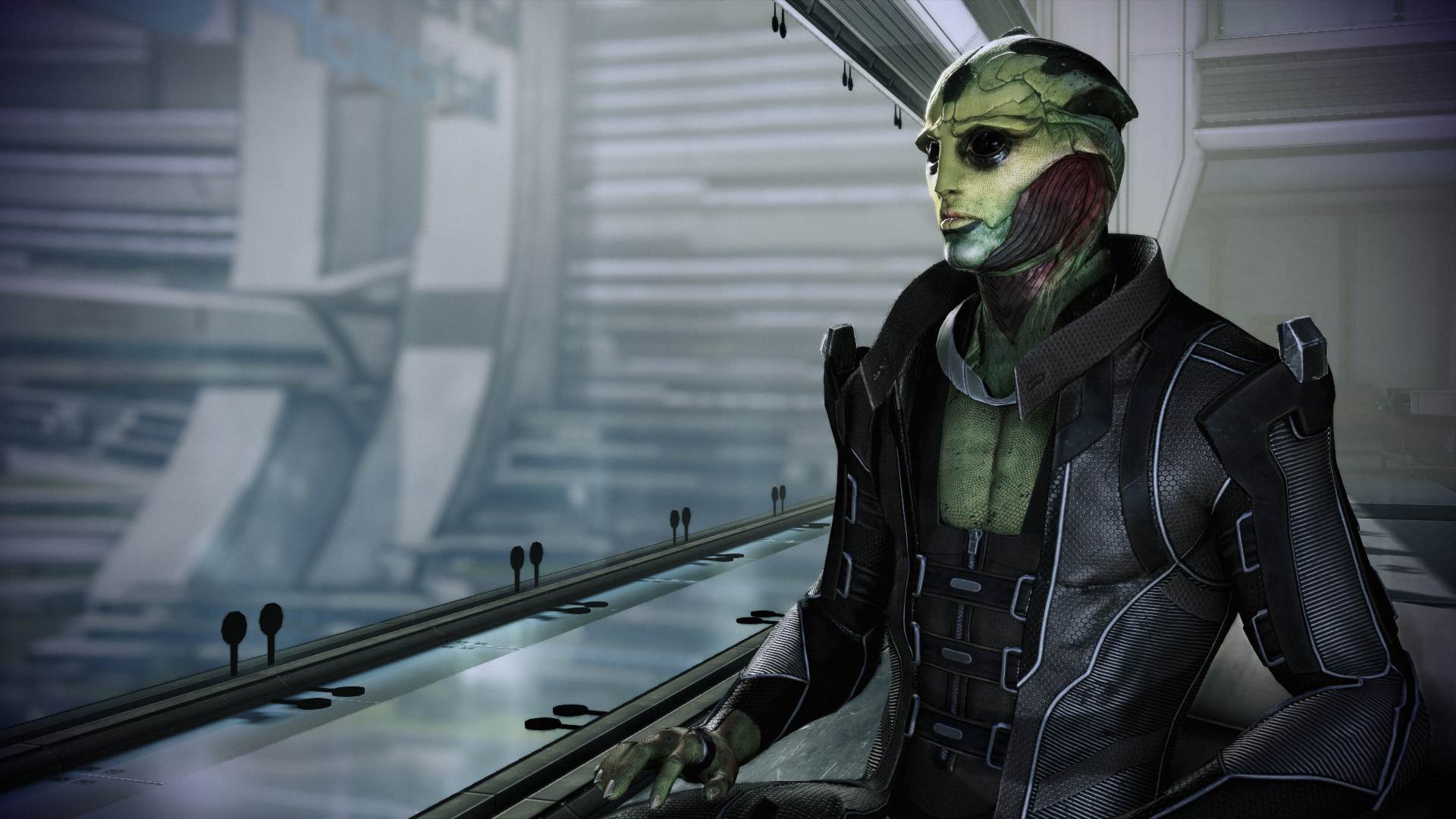
Mass Effect Legendary Edition (PC [reviewed], PS4, Xbox One)
Developer: BioWare
Publisher: Electronic Arts
Released: May 14, 2021
MSRP: $59.99
It’s nigh-impossible to separate those experiences from playing Mass Effect. They’re essential to the experience. And thankfully, the Legendary Edition doesn’t make too much effort to change any of that. What’s amazing about the Mass Effect Legendary Edition is simply what it is: this entire trilogy, with (almost) every single piece of additional content, gathered into one unified launcher. That alone is enough reason for anyone who enjoys storytelling in games, tough choices, big space epics, or just some good RPG-shooter hybrid fun to take note.
For those who haven’t played or heard about these games, Mass Effect follows the story of Commander Shepard, a human soldier who becomes embroiled in a galaxy-spanning conflict after activating a beacon left behind by an extinct alien race, the Protheans. As you embark on your journey to hunt down a rogue special agent, you meet and befriend aliens of many different species, all with their own backstories and cultures; you fight synthetic battle platforms called the Geth and dozens of mercenary armies; recruit a team, get to know each other, and maybe even fall in love. And eventually, you uncover the greater threat: a fleet of life-forms called the Reapers, who are going to eventually invade the galaxy.
I’ve spent the last few weeks putting another 100-plus hours into all three games, in an effort to see exactly how the trilogy has changed, and in some cases, how it hasn’t. All three of the Commander Shepard-led Mass Effect games are here, and the only DLC left out is Pinnacle Station, which isn’t a tough loss when compared to other, more plot-relevant side stories. It is the full trilogy, accessible from a launcher that lets you easily carry one save—in my case, Jareth Shepard—through all three games.
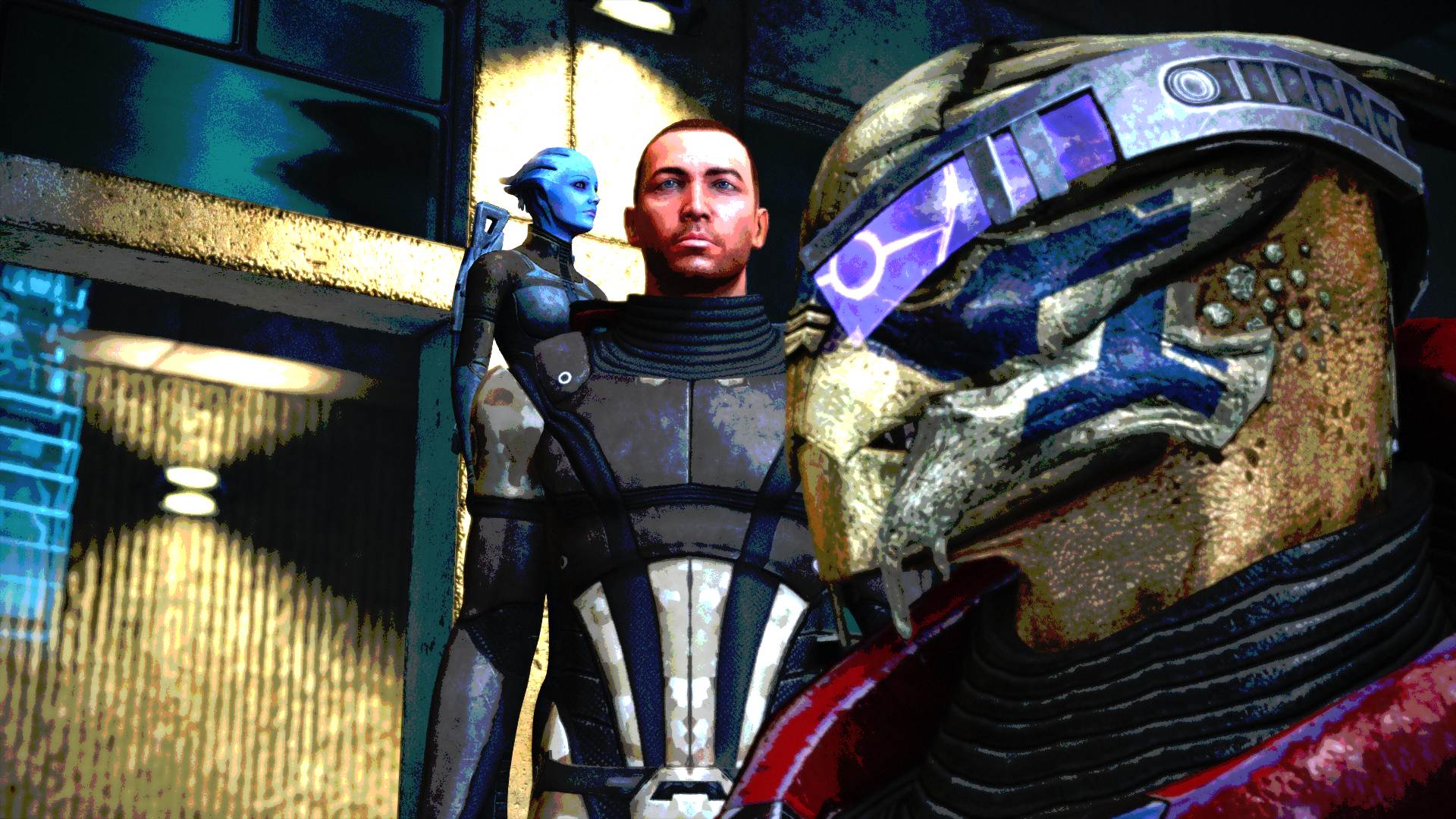
Of course, there are still changes made to the individual parts. This isn’t a 1:1 recreation, but it’s also not a full-on remake. The first Mass Effect received the most attention, and it really does show. Character models are noticeably different, mostly to positive results (though maybe not for Udina), and environments look fairly different compared to their original counterparts. There isn’t a magic switch to flip to see the old look, but the changes range from aesthetic—especially in the lighting department—to a few arenas here and there that have been moved around.
There are also some gameplay adjustments made, mostly to smooth out the experience of Mass Effect 1. The Mako is a little weightier and stickier, though I still found myself defaulting back to the legacy controls. The combat tune-ups feel pretty good though; as I wrote before, this is definitely still Mass Effect 1, with all the good that entails but also some of the jank that can never be fully removed (and depending on who you ask, that’s a good thing).
Journaling our way through the Milky Way
- Mass Effect: Legendary Edition – impressions of Mass Effect 1
- Mass Effect 2’s intro still absolutely rules
- Mass Effect: LE’s photo mode lets me see the trilogy in a new way
Overall, it means Mass Effect 1 is a pretty big draw for both newcomers and old fans alike. The former get an easier onboarding process, and the latter get a new and improved version of the old game which, aside from some lighting qualms, is probably the best representation we’ve had yet of what the first Mass Effect is. That isn’t the core of what this is, though; it’s the whole trilogy, all gathered into one.
Launching into Mass Effect 2 feels just like it did back in 2010, which is to say it rules. The second and third Mass Effect both look nicer, though the change is less drastic compared to the first Mass Effect game, but Mass Effect 2 retains a lot of its ambiance. Omega still feels like the shady haven for the scourge of the galaxy, Illium is an Asari-built corporate bastion with practically zero oversight, and man, do I love visiting Tuchanka.
The adjustment to Paragon and Renegade morality feels really good, so even if I was making the same choices I’ve always made (how else are you supposed to play Mass Effect), I wasn’t hanging on the edge of my seat to see if I had enough points to settle squadmate differences. Mass Effect 2 largely stands the test of time on its own, and its incredible DLC—namely Lair of the Shadow Broker and Arrival—are perfect bridges to the trilogy’s grand finale.
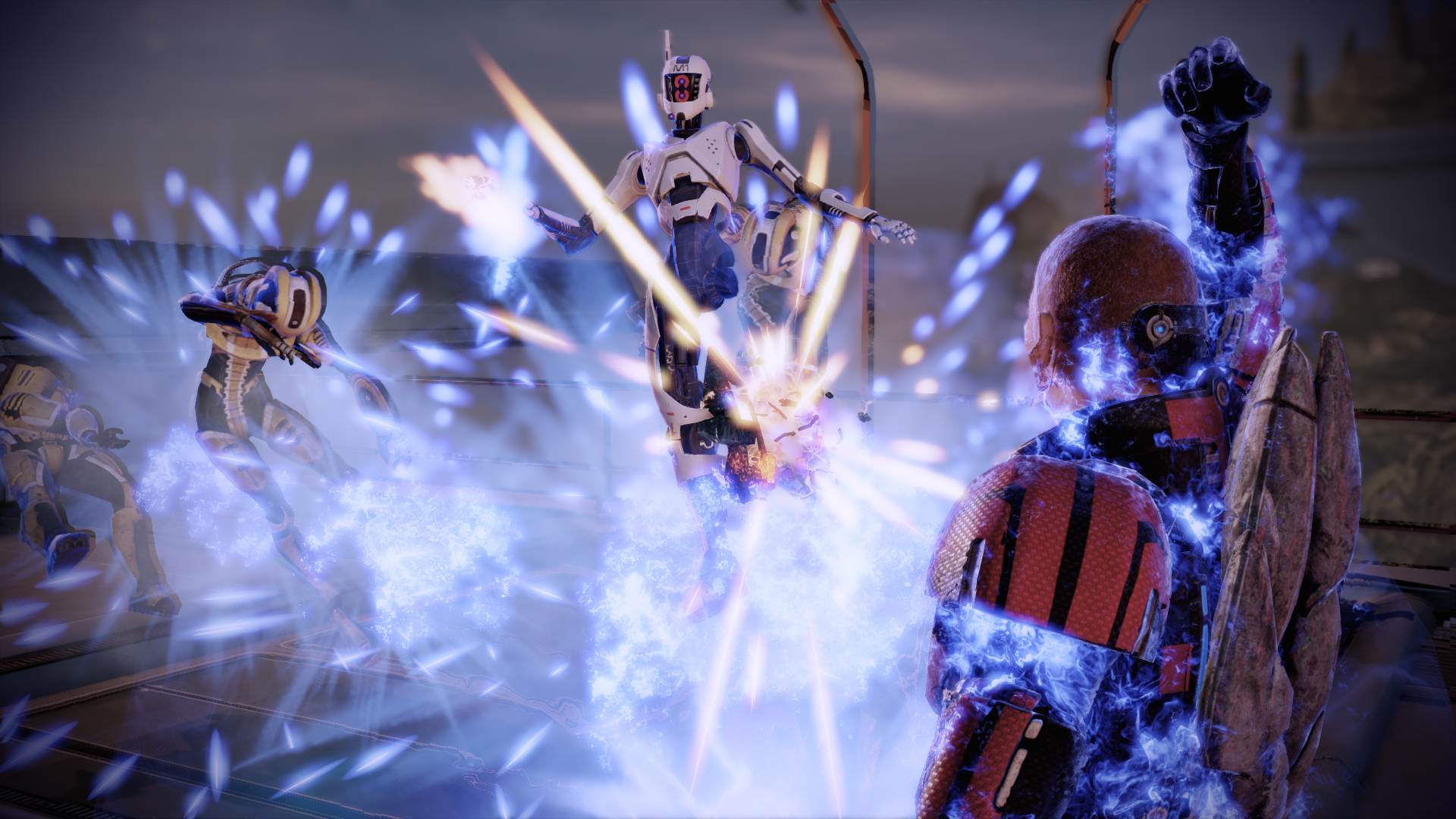
Where Mass Effect 2 feels the least affected by Legendary Edition changes, and the first game clearly got the most direct attention, Mass Effect 3 feels the most different thanks to what isn’t there: multiplayer. As the Reapers invade and the galaxy goes to war, there is only one bar to manage that ultimately determines what ending options you have and how devastating the conflict is to the united galactic forces.
I was worried it might be a little more difficult to get all the resources this time around, but importing a save, doing most of the crewmate-related side stories (and saving them when given the option), and doing some DLC like Leviathan and Omega still got me to high enough War Assets to get the achievement. It mostly feels like importing a save, and carrying a single Shepard through the trilogy versus starting in one place, is more rewarded.
And that’s the magic of it all: the simple ability to carry a single character through three games and their myriad DLC, creating a cohesive version of this trilogy. Even playing through this on PC via Origin not too long ago, I still had to buy the DLC as separate pieces, and ensure my save was carried over properly between each game.
The Legendary Edition makes it easy. Every piece of content is packed in and doled out. I can literally see my Shepard moving through each game, culminating in the end of their journey at the conclusion of Mass Effect 3. There are some lingering relics of the time—the game distributes its DLC a little haphazardly, so new players might end up playing content like ME2‘s Arrival before they really should—but this is, quite simply, all of Mass Effect (sans Andromeda) in a single package.
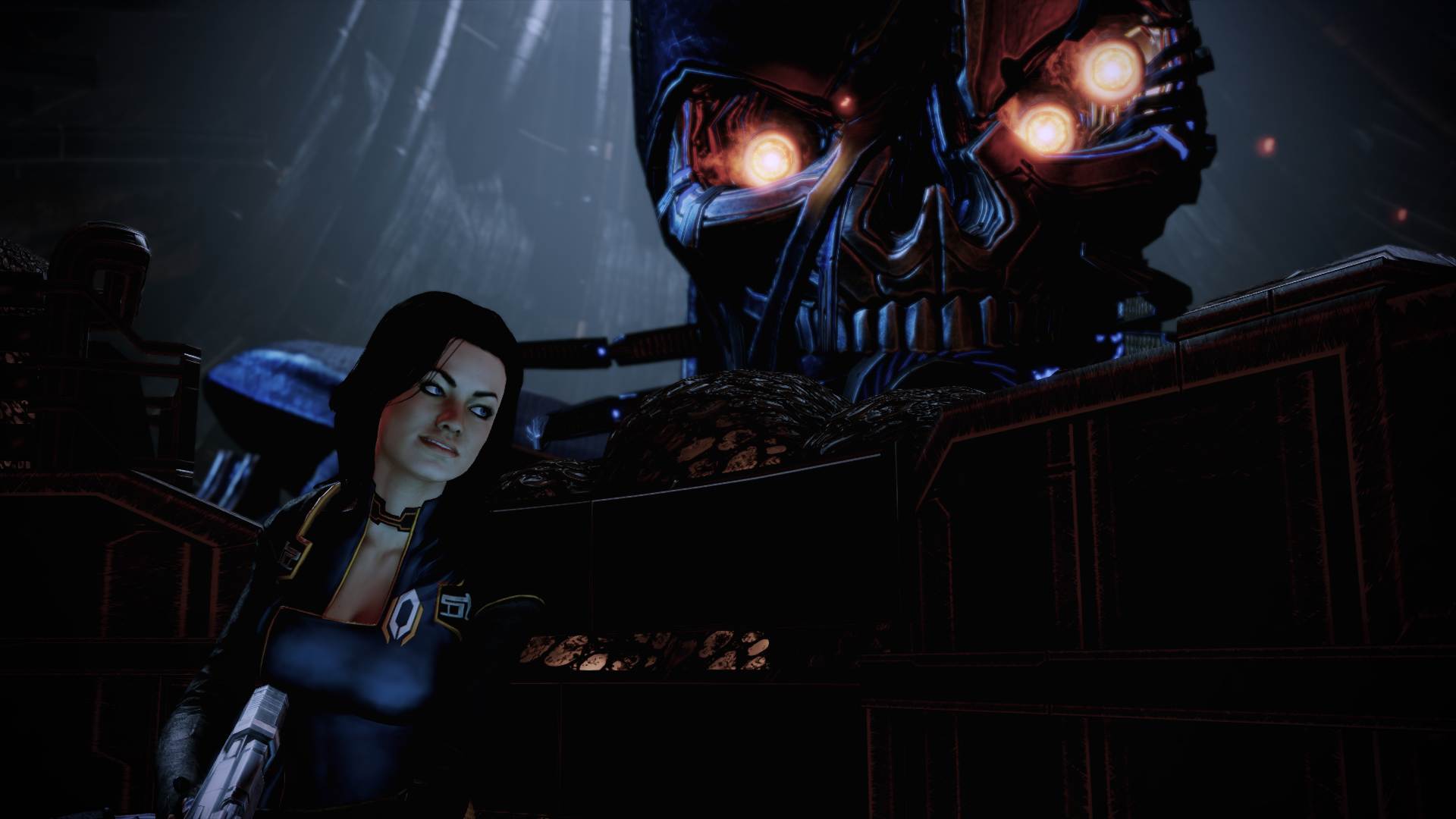
It’s incredible to have. Across three games, you can essentially see an entire console generation’s approach to cover-shooters and RPGs, as well as a studio’s internal design philosophy, evolve over time. At times, even despite the fairly lengthy adjustments made to Mass Effect 1, the Legendary Edition feels like a time capsule of its era of game development.
That also means some aspects and issues of the time have lingered as well, especially its lacking romance options for queer characters until the third game, though modders are already working to implement some of that again in the Legendary Edition.
Those issues aside, it doesn’t usually feel dated to its detriment. This trilogy has some great combat and gameplay, but it’s always had its cast of characters as its strongest pillar, and that hasn’t changed as the years have gone on. Liara, Tali, Garrus, Wrex, Thane, Mordin, Legion, Grunt, and everyone else who sets foot on the Normandy are as memorable as ever, with plenty of loving attention paid to making them look good across the series. Seriously, Wrex’s Mass Effect 1 appearance is something else; I literally let out a vocal “woah” when I first saw him in-game.
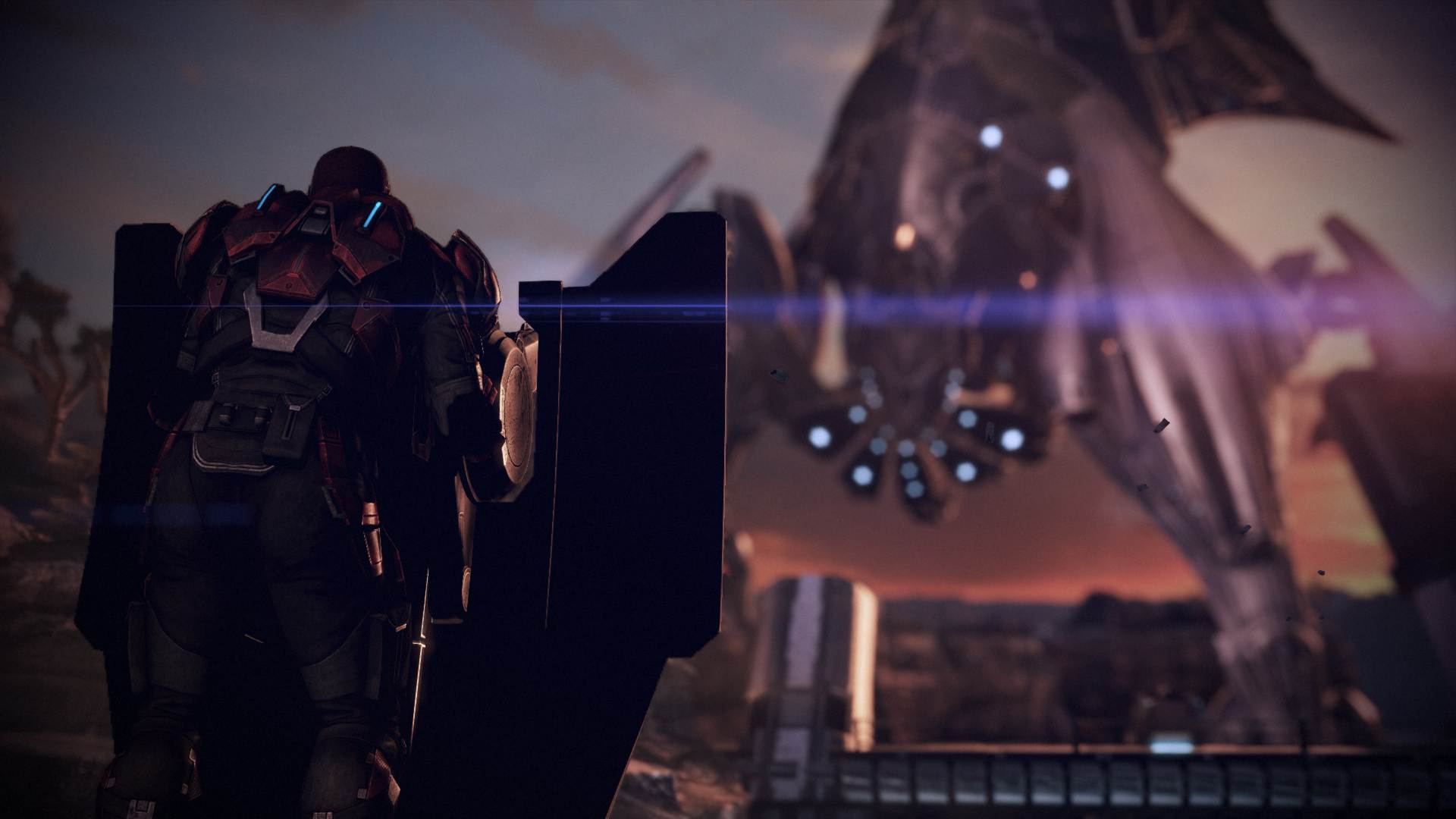
If we’re setting off to new horizons and, eventually, a new Mass Effect, then Mass Effect Legendary Edition serves as a solid collection of this trilogy. This is everything these three games were, and still are to many fans, preserved for time. Just like the capsule Liara makes during Mass Effect 3, this is what can hopefully stand the test of time and carry what this trilogy is—its characters, its worlds, and its stories—forward for ages to come.
[This review is based on a retail build of the game provided by the publisher.]
